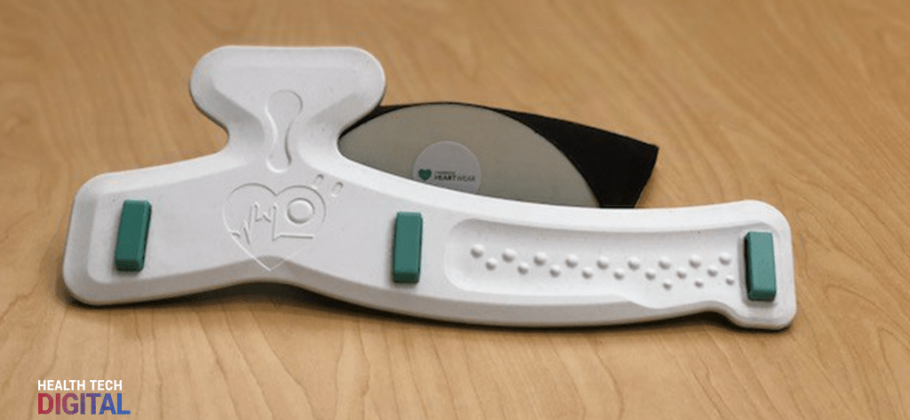Cambridge Heartwear, a medical provider of low-cost, next-generation wearable heart monitors that uses artificial intelligence (AI) to diagnose heart rhythm and respiratory problems in real time is announcing the launch of their company and release of their Heartsense monitor in 2019. In the U.S., strokes are among the leading causes of death and heart disease is the leading killer. National and international data suggests that more than 80 percent of those who die or who are left with severe neurological deficits following a stroke had an irregular heartbeat as the underlying cause.
Atrial fibrillation (AF) or AFib is an irregular heart rhythm that can lead to heart conditions such as blood clots, stroke, and heart failure. Cambridge Heartwear’s solution to detecting AF and heart disease is an ergonomically designed and easy to wear a heart monitor that provides continuous monitoring of heart rhythms via electrocardiograms (ECGs) and the automatic interpretation and detection of irregularities using artificial intelligence.
Unlike other wearable healthcare devices that originated from a “product first, healthcare second’ approach, the Heartsense monitor was born out of the real-life clinical practice of Cambridge cardiologist and cardiology MIT fellow Dr. Rameen Shakur.
“Our vision behind forming Cambridge Heartwear was to create a bespoke and patient-driven solution to the problem of preventing stroke and heart disease,” said Dr. Shakur, founder and CEO of Cambridge Heartwear. “The technology and clinical care systems we currently have in place are not picking up atrial fibrillation before someone has a stroke and do not enable us to put preventative treatment in place. While there are wearable devices that do general health detection, there is currently no medically-driven device on the market coming out of a clinical practice. There is a critical need for a holistic, multi-input and patient-driven device that takes into account the complex physiology of a patient. We are the first patient-driven AI wearable device born out of real-life clinical practice, not an engineering lab.”
Cambridge Heartwear’s Heartsense monitor is the only wirelessly chargeable heart health device on the market that uses real-time, pulse oximetry and multiple ECG inputs. When using the device, patients control and own their own heart data. Should they choose to, patients can also allow the device to securely acquire and transmit their real-time data to their physician. The platform allows patient’s data to be shared with physicians the moment activity is started.
The AI healthcare sector is one of the fastest growing markets that virtually pays for itself. Unlike other healthcare verticals that require investments, AI is autonomous in generating revenue and year over year growth. In 2014, AI healthcare was valued at $600 million; by 2021, the AI health market is expected to reach $6.6 billion, which is a compound annual growth rate of 40%.
The Cambridge Heartsense monitor is already undergoing clinical trials among top-tier athletic organizations in the UK and the U.S. It was recently awarded on PwC’s List of Most Innovative and Disruptive New Companies in the U.K. The company is also providing Heartsense monitors to communities in India and Africa to help prevent heart disease and stroke amongst patients. The device will be available on the market in early 2019.













